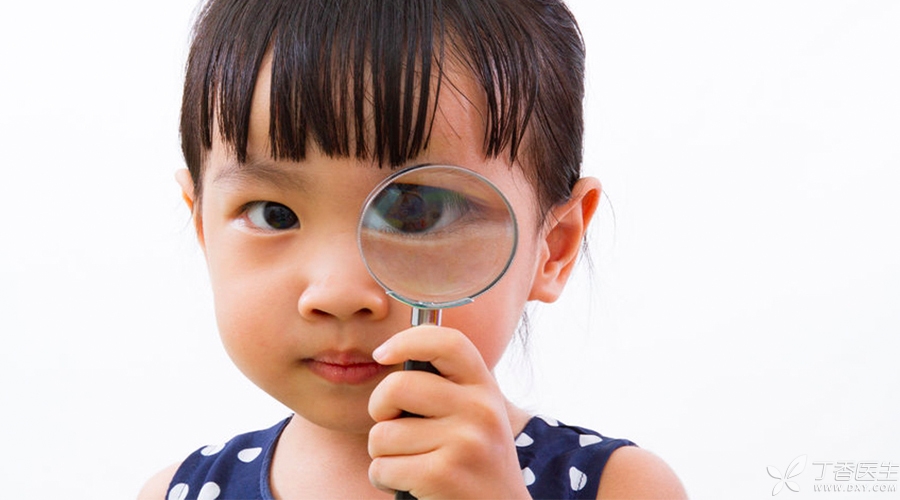
In recent years, a concept of parenting has arisen, and many so-called experts and early childhood education systems are trying their best to exaggerate this harsh-[critical period].
A child has N critical periods from 0 to 3 years old. If the child is given correct education during the critical period, he will learn quickly and well and will often get twice the result with half the effort. Once the critical period is missed, learning will take several times of effort to make up for it, and even will never be able to make up for it.
Parents are very nervous and have not yet reached the [critical period] to prepare quickly. They have not carefully [missed the critical period] to find various ways to remedy the situation…
Today, Dr. Clove invited Mr. Ye Zhuang to talk to us about whether this [critical period] is what.
[Critical Period] If you miss it, you will regret it for 10 years?
The concept of [critical period] is that children’s development has rhythm, and each ability has [window period], which is most suitable for training according to a specific period of time.
Many people use the concept of “critical period” to try to find the best timetable for raising children, and even think that “critical period” is too important to miss.
Not really.
Children have strong plasticity, and the human brain is not born to determine that each part must perform its duties.
[Critical Period] For vision and hearing, there may indeed be a critical period that cannot be waited for, but a child’s development contains more elements than physiological development, especially in terms of personality and social development-both have greater plasticity, and there is no absolute critical period of [there is no shop after this village].
Developmental psychology is more inclined to use [Sensitive Period] today to replace the previously non-negotiable [critical period].
The meaning of [sensitive period] is not to force us to hit the ring in the process of raising our children, but to make our raising not too monotonous and to cooperate well with the development law of our children.
There are 18 developmental [sensitive] periods before the age of 3
1. Developmental sensitive period of body and neurophysiology
3 months: Perception and coordination are highly sensitive during this period of time, and children begin to acquire a sense of initiative and control.
8 months: Children also begin to learn to sit, climb, roll and then learn to stand and walk. This is the critical period for learning behavior.
18 months: Language ability and thinking development are obvious.
2. Sensitive period of intellectual development
6 months: Able to distinguish old and new things, more sensitive and interested in fresh stimuli;
8 ~ 9 months: Begin to master the [goals and intentions] in daily life, and do things with a purpose.
9 ~ 10 months: will look for feedback and auxiliary decision-making by referring to the surrounding information, and start actively looking for information and trying to analyze;
18 months: I learned to [see people order dishes] and make different responses according to different people’s expectations.
30 months: Began to participate in some [fake games] and have an independent imagination.
3. Sensitive period of language development
5 months: Begin to use regular voices to attract adults’ attention;
8 months: Begin to organize the sequencing expression of pronunciation;
12 ~ 24 months: a sensitive period for a large number of vocabulary learning;
13 ~ 18 months: Begin to learn tone, if parents use firm and positive words for their children.
4. Sensitive period of relationship development
6 months: Begin to develop empathy and prefer to help those who help others;
6 ~ 9 months: Begin to establish his first attachment relationship (usually with his mother), which directly affects his social model;
12 ~ 24 months: Social skills have greatly developed and real peer relationships have begun to be established.
5. Critical period of self-development
4 ~ 10 months: The sense of self gradually increased and began to establish attachment relationship with parents as social companions.
10 ~ 15 months: Begin to distinguish yourself from your parents because of the further development of self-awareness;
15 ~ 18 months: Begin to develop a deeper self and be able to better interact with different others.
What should I do when the child [critical period] comes

1. Adequate resources
In the sensitive period of language development, talk more to children. In the sensitive period of attachment development, actively respond to children’s needs; In the sensitive period of social development, take the child to contact more of his peers-these are all resources that parents should provide and match the sensitive period of the child.
2. If some behaviors do not come as promised, don’t be nervous first, haste makes waste.
[My child is X months old. It is supposed to be X. Why not yet? ]
Although the sensitive period exists objectively, the individual differences of children are great. Different children may have different sensitive periods in different fields, and the sensitive period still provides a reference.
The absence of matching progress during the sensitive period does not necessarily mean that there is a problem of sluggish development. Don’t label your child hastily because of this. Analyze calmly before making a decision.
Step 3: Don’t force your child
Being a parent also has its own willfulness and nature. Most of the time we should not be tired by rules and regulations. Children’s development needs good experience, and children’s childhood also needs good feelings.
Most of the time, if we temporarily forget the constraints of the critical and sensitive periods and interact and contact with children casually, it will often have very good results.
